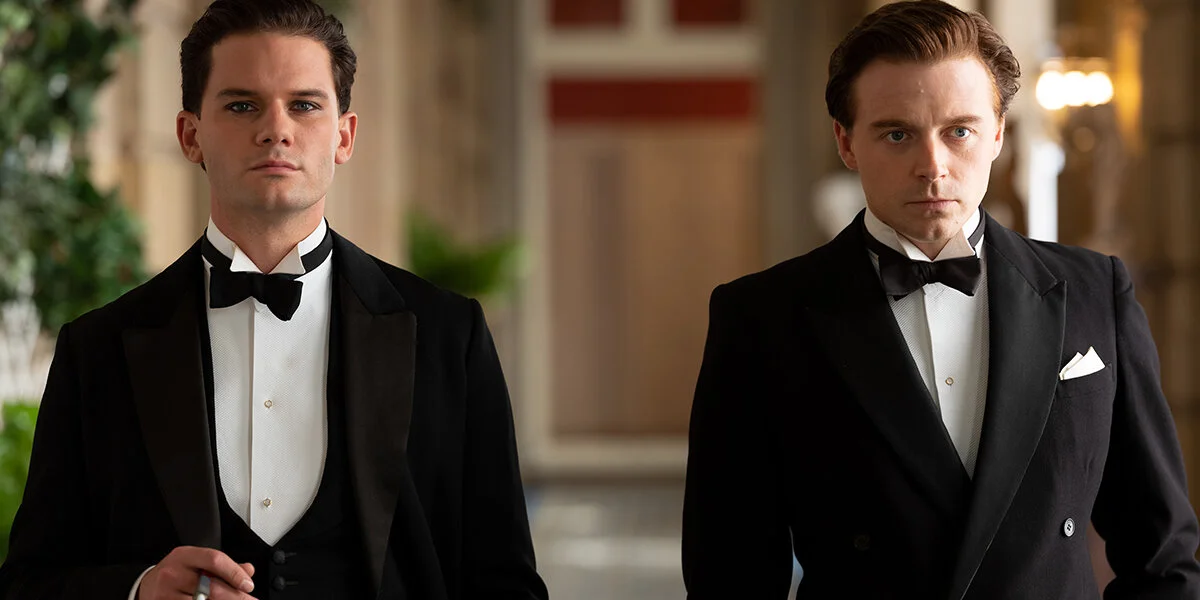Review by Zach Dennis
A number of times in Benediction, director Terence Davies cuts between the words of our subject, English poet Siegfried Sassoon, and archival images of World War I soldiers in the trenches. For most of the opening of the film, Sassoon is in a battle with military officials to at least recognize what is being done to these men through the wars they’re fighting. Naturally, they disagree and Sassoon is institutionalized for awhile before going on to be a well-known poet in the U.K.
Benediction seems to be a movie contemplating the concept of being left behind. An older Sassoon (played by Peter Capaldi) starts to find religion in his later years and grows more bitter and short with his wife and son. This is in contrast to his younger self (played by Jack Lowden), who seems constantly in conflict with his fight to live as a gay man in the early 1900s and to find peace with his fellow soldiers, most of who didn’t come home.
There’s a clear line between the fight for equality in the LGBTQ+ community and the lost soldier not coming home that Sassoon is wrestling with. While never explicitly making a connection to AIDS or a similar historical point, Sassoon seems haunted by his friends and fellow soldiers who risked their lives for this country that gave them the bare minimum (if anything at all) when they died and then moved forward.
As an older man, Sassoon seems to be a typical curmudgeon when it comes to near experiences. His son tries to take him to a play and he rejects going to see something he’s probably seen before and better. While it could be read as an older generation rejecting the new, it can also be seen (at least in the context of Sassoon’s life) as a man trying to hold onto the past that he never really got to experience.
Jeremy Irvine and Jack Lowden in ‘Benediction’
His present is always looking back or looking at ghosts. How is he supposed to enjoy it if it feels so empty?
His various partners throughout the film also speak to this. He never feels like a character tortured inside for being gay, but one that seems to be deeply unfulfilled by the ways of life or personalities of the men he spends his time with. It stems more from their abilities to cast out anything else happening in the world in order to focus on what’s in front of them, and that flippant attitude to life seems to be what Sassoon rejects.
He finds more complete companionship in Wilfred Owen, another closeted soldier who he meets while they’re institutionalized for PTSD, and Bobby Andrews, a man who was dating one of Sassoon’s partners before he was. Both seem to have that present mindset that Sassoon has, and also reject the lifestyles that Sassoon’s partners Ivor Novello and Stephen Tennant take part in.
In this way, Sassoon is a man out of time – unable to accept his present because of the ghosts following him and unable to enjoy the future because it gets him farther away from the comfort of the present that he never had time to know.

